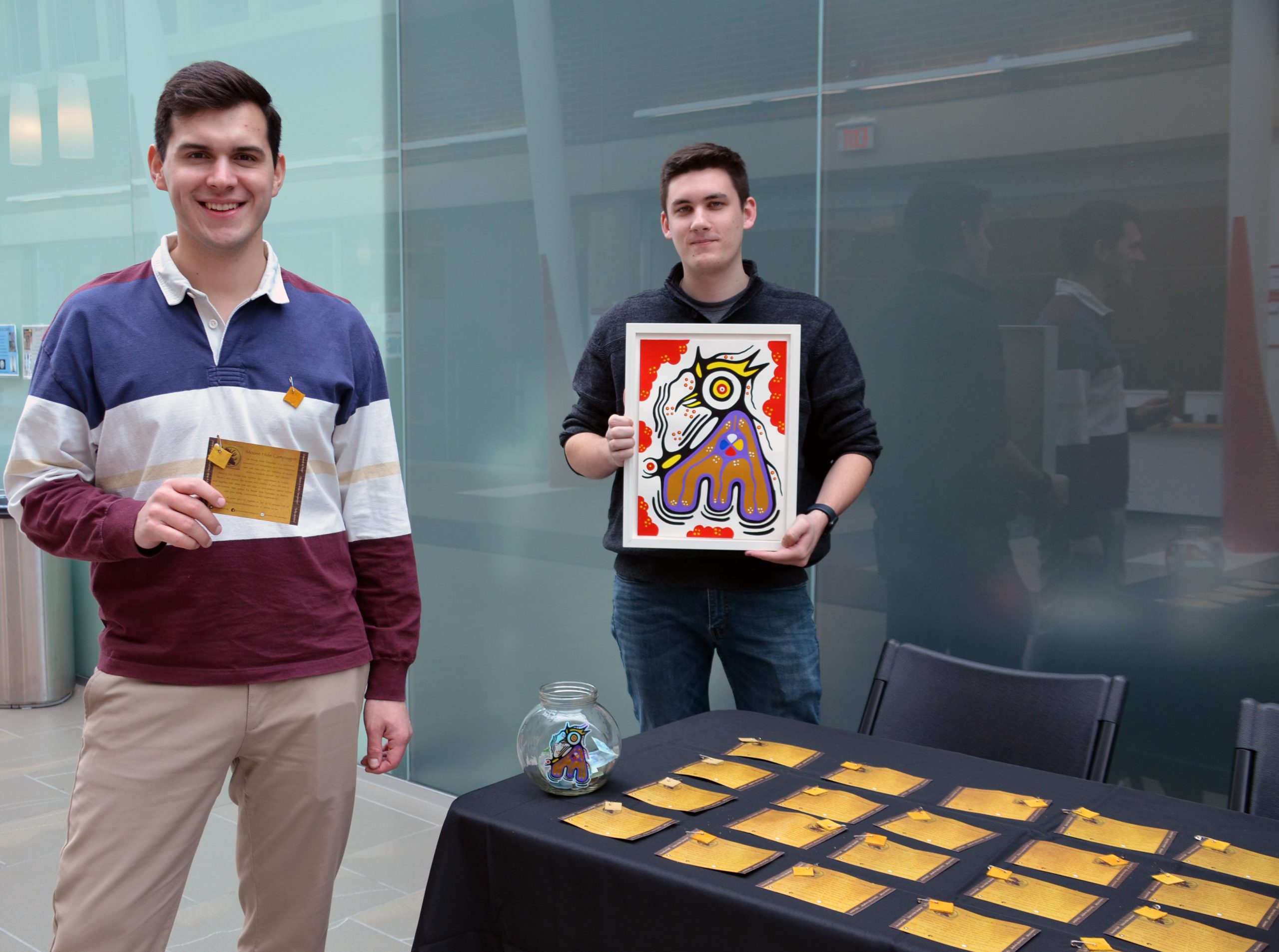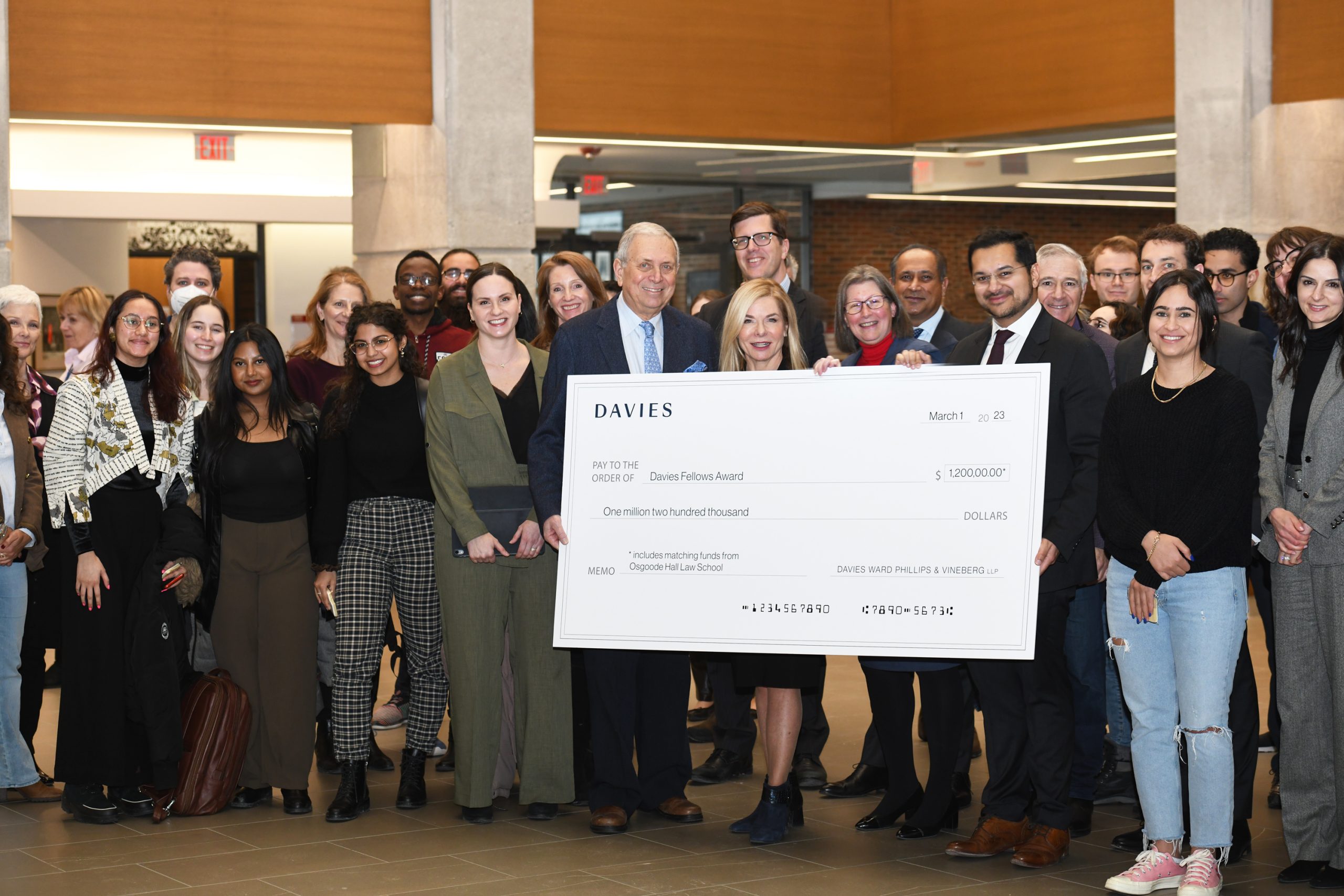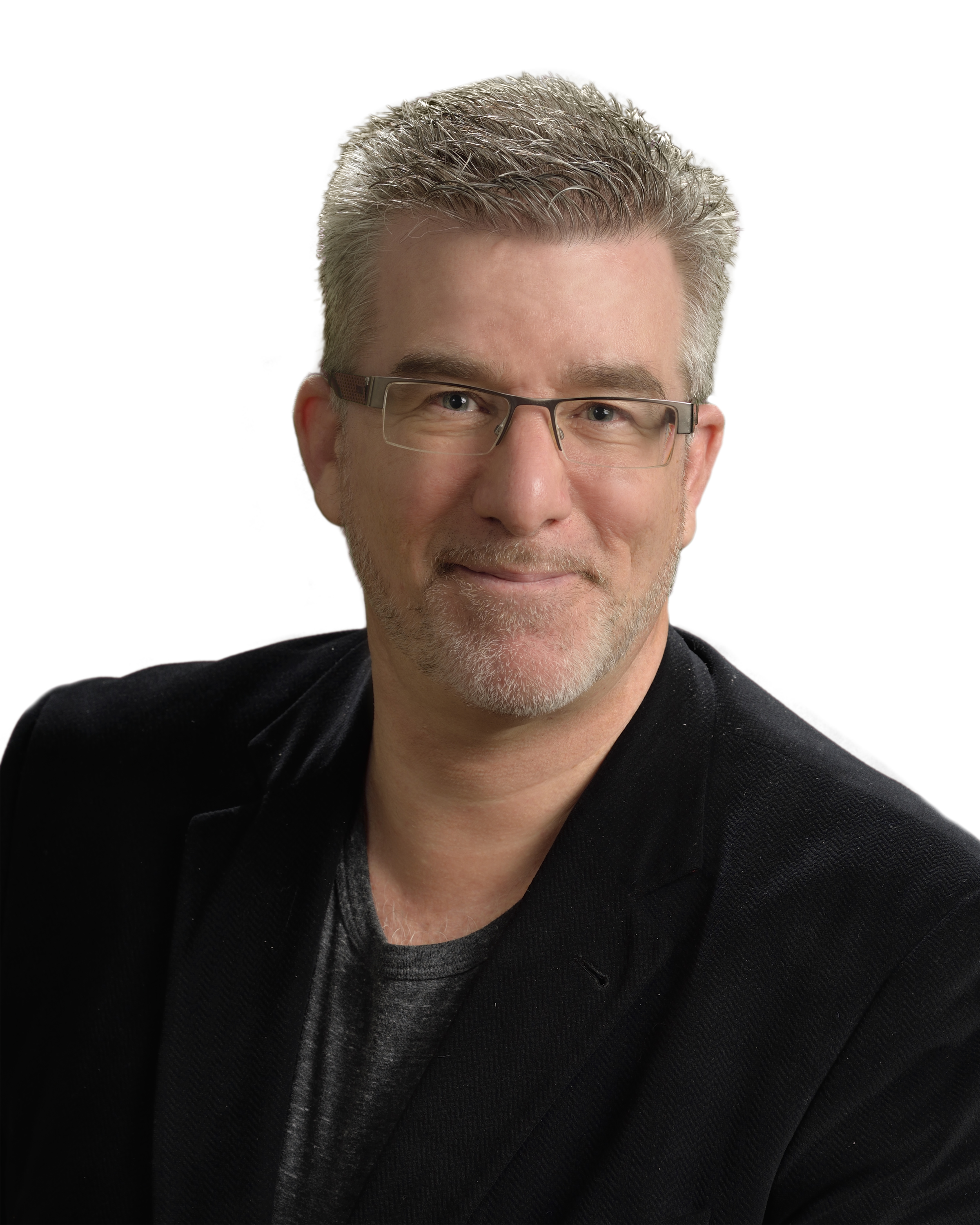Federal Minister of Justice and Attorney General David Lametti has told students at Osgoode Hall Law School that it will take the next generation of law students and Canadians to continue the work of reconciliation with the country’s Indigenous peoples.
True reconciliation will require a transformation in Canadian law and the way Canadians think, he said in a special address to Osgoode students on March 27.
“I think all of that is the future and all of that is you,” he said. “Derooting colonialism or stripping away the layers of colonialism will take time and will be a constant effort, but it can happen,” he added.
“That’s my challenge to you,” he said. “You will have to work with each other so claims of justice can be fulfilled.”
Lametti urged the law students to look for opportunities to lead and paid tribute to Osgoode alumni who have had an impact on his life and Canadian society, including deceased Supreme Court of Canada Justice Peter Cory ‘50, for whom he clerked, Federal Court Justice Avvy Go ’99 (LLM), Shalene Curtis-Micallef ‘95, who was appointed as deputy minister of justice in February 2023, and Michael Tulloch ‘89, who was appointed Chief Justice of Ontario in December 2022.
“No doubt their principles and perspectives can be traced back to their days at Osgoode,” he said. “I’ll put aside my McGill bias,” added the former McGill University law professor, “and acknowledge that this law school has been forming great legal minds for 134 years.”
Lametti, a native of Port Colborne, Ont., who was elected to represent his Montreal riding in 2015, said he never expected to be nominated as a federal election candidate, much less win his seat.
“So I would say to you, watch out for those doors as they open,” he urged the students. “Keep an eye open for how you can lead because you can have a big impact once you get there.”
The attorney general restated the federal government’s commitment to implementing its United Nations Declaration on the Rights of Indigenous Peoples Act, with its most recent step coming March 20 with the release of a draft action plan.
“I think the declaration has the potential to be one of the single most transformational points in what I think could be the refounding of the country,” said Lametti. “But in order to get there, it’s going to take a great deal more work than has already been done and a stripping away of the layers of colonialism that have been imposed on Indigenous peoples.”
He also vowed to continue supporting the work of Kimberly Murray ‘93, the federal government’s special interlocutor for missing children and unmarked graves and burial sites associated with Indian residential schools.
He said he is also pushing ahead with work to create an independent Canadian Criminal Cases Review Commission, which he hopes will help correct the over-representation of Indigenous people and other marginalized Canadians in the justice system. Similar independent review commissions exist in the U.K., Scotland, New Zealand and some U.S. states.
In taking questions from the audience, Lametti agreed that the full implementation of the United Nations Declaration on the Rights of Indigenous Peoples (UNDRIP) by the federal government will require the adoption of Indigenous legal systems as part of a multi-juridical framework.
“We have to recognize there are more than two legal systems in this country,” he said. “I’m hoping we get to a point where we truly become legal pluralists and different people will be governed by different legal systems at the same time – and sometimes multiple legal systems at the same time.”
He also expressed the federal government’s commitment to investing more in Indigenous-led restorative justice initiatives and in improving the nationwide reach and quality of Gladue sentencing reports, which Canadian courts can request before sentencing an offender who is Indigenous.
At the end of the session, Lametti posed for photos with students, including members of the Osgoode Indigenous Students’ Association and Lori Mishibinijima, Osgoode’s program manager and special advisor, Indigenous & reconciliation initiatives.







